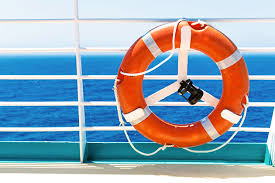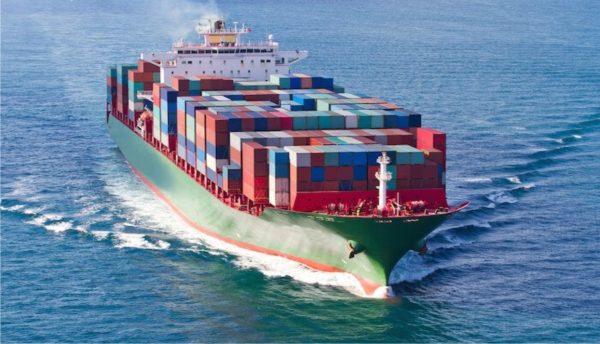Precautionary Measures At Sea

Mr. John Arowolo is a Marine Engineer with Delfi Sa Limited, a shipping company. In this edition of your education page, he takes you on the precautionary measures necessary to be taken while at sea for both operators and passengers; he also explains how drowned passengers can be rescued in case of emergency, he sheds light on what to do in case of accidents on the sea and what is expected of the crew to do for the passengers.
What are the precautionary measures captains take to protect the lives of passengers at sea?
The number one measure is; before boarding the boat, the passengers have to put on life jackets. That is the foremost measure. There must also be safety equipment in the boat. Every boat has its GPS (a navigational system that determines the latitude and longitude of a receiver on earth by computing the time difference for signals from different satellites to reach the receive) and normally, it always has two engines so that if one becomes faulty, the other one will assist in carrying on the boat. If it is high sea, the GPS will direct them on where they are going and bring them.
In case of accidents, what are the measures put in place to help people that are drowning or drowned?
Before we embark on any boat journey, we equip ourselves. We have VHF radio which we use in contacting other boats around. A boat cannot just sink like that. The VHF is always on channel 16, which is the general channel for marine. We always talk on VHF to alert others about what is happening and identifying our location to them. The coordinates are with the GPS, we call to tell any ship around us to come to our rescue.
Did the captains attend any kind of special school or training to become captains?
Nigerian Maritime Administration and Safety Agency (NIMASA) organizes the training for ferry captains now. Any prospective captain will go to NIMASA; they will train the person and give him certificate to operate as a Quarter Master, then the person can now pilot any boat he wants to pilot. The person has to go through NIMASA; it is only NIMASA that can give the certificate here in Nigeria.
Are there boats that are better than others?
There are a lot of boats, different types and companies. It is only ferry that is different from the one that goes to high sea. The ones that convey passengers from here (Apapa) to Marina or Ikorodu are made here in Nigeria. But the ferries are from abroad, they were imported into the country and it is totally different from the ones that run Ojo, Ikorodu; all those ones are banana boats, they are covered so that rain will not drench the passengers.
What is the difference between this one (ferry) and the ones that run Ikorodu, Ojo?
This one is steel boat, the ones that run Ikorodu are fibre glass, and they are made here. This one is steel aluminium. It is better than the fibre glass. It is also safer and bigger, even though it is not as fast as the one made of fibre glass.
In case of accident, is there a kind of compensation for passengers?
The management does that, for example last two months, an accident happened along Ikorodu road, the boat was travelling from Okera to Ikorodu with passengers, on the way, there was a wood underneath the water and the boat hit the wood accidentally and it tore the boat into two. Most of the passengers got saved, but the ones that died were those that didn’t put on their jackets. That’s why they always announce that anybody that wants to board must put on his jacket. It is the only thing that can save you in situations like that. If you put on your jacket properly, you don’t have problem even if you don’t know how to swim, the jacket will keep you afloat.
Why would they allow people without life jacket to even enter the boat in the first place?
We are humans, most of us are stubborn, after warning them repeatedly they will still do what they want. Some even put on jacket to be allowed entrance in the boat, when they sit down, they will remove it again, that is the problem we are having. Even LASWA made it a point of duty to be arresting boats that are not complying with the guidelines on putting of life jacket.
If any ferry captain flouts any guidelines laid down by NIMASA and other regulatory bodies, are their penalties?
They arrest them but I don’t actually know the penalty meted out to them, I don’t know if their licenses are revoked but they sure have penalties for offenders.
Suppose a boat suddenly develops fault, what is the first thing that comes to your mind?
The first thing you have to do as assistant captain or a deck hand is to address the passengers and tell them what has happened and the possible solution to it and if it is not something you could do at that very moment, you can call for help from other boats, either from Apapa or Marina to rescue.
What about if the passengers start to panic and there is chaos in the boat, how do you manage such crisis?
That depends on the individual, how much you can convince them to calm them down. If they are convinced there won’t be panic, even if there is, it would be reduced. Just be truthful with them and tell them what you are doing about it, which will at least calm them down. This is a ferry; it is not a speed boat that could just capsize like that it depends on how well you present the situation to them. It has happened several times and there was not much panic because of the way we presented the problem to the passengers.
What are the precautionary measures you take before you leave the jetty in the first place?
Normally before any passenger board a ferry, he or she needs to put on life jacket and tighten it. Moreover, now you can notice that the boat is dangling on the water, it is my duty to address the passengers when it happens on a journey not to panic because it will only last for a time and then subsides. The ferry is stable; it is not something that can just capsize like that. And this ferry is using Yamaha engine, one of the best, there are two engines here, each is 150 horse powers, very strong and reliable.
What is the likelihood of accident occurring?
I have been in this company for about four and half years now, I have not experienced any incident of accident.
But suppose an accident happened?
If it happens, the first thing you are to address your passengers, encourage them to tighten up their life jacket and jump into the water. But before that one I will first of all radio on the situation. In less than a minute a great number of them will come for rescue but before then, the passengers have to jump into the water. We also have the life ring, which is launched into the water. It looks like a ring. You launch it into the water and pick them one after the other. Even the life jacket seem as if it cannot carry us because of its small size compared to our body weight but it will sure float us, it is what it is made for. The life ring also helps rescue people floating on life jacket by the means of rope attached to them. It is part of the safety measures we have on the ferry. We also have fire extinguishers on board against incidences of fire.
What are likely accidents that may require people jumping into the water?
If any boat is leaking, it is dangerous. This leakage is often caused when a boat climbs a wreck. A wreck is an abandoned object (iron) in the water; it is the major cause of leakage in boats. In a situation of leakages, passengers should jump into the water with their life jackets tightened up. If incidents of fire occur too and the fire extinguishers could not quench the fire, the safest action to take is for all the passengers to jump into the water with their jackets tightened up. In situations like that, the captain and the assistant captain like myself will be the last to jump out of the boat into the water. If anything should happen the entire passenger must first stay alive by jumping before us











